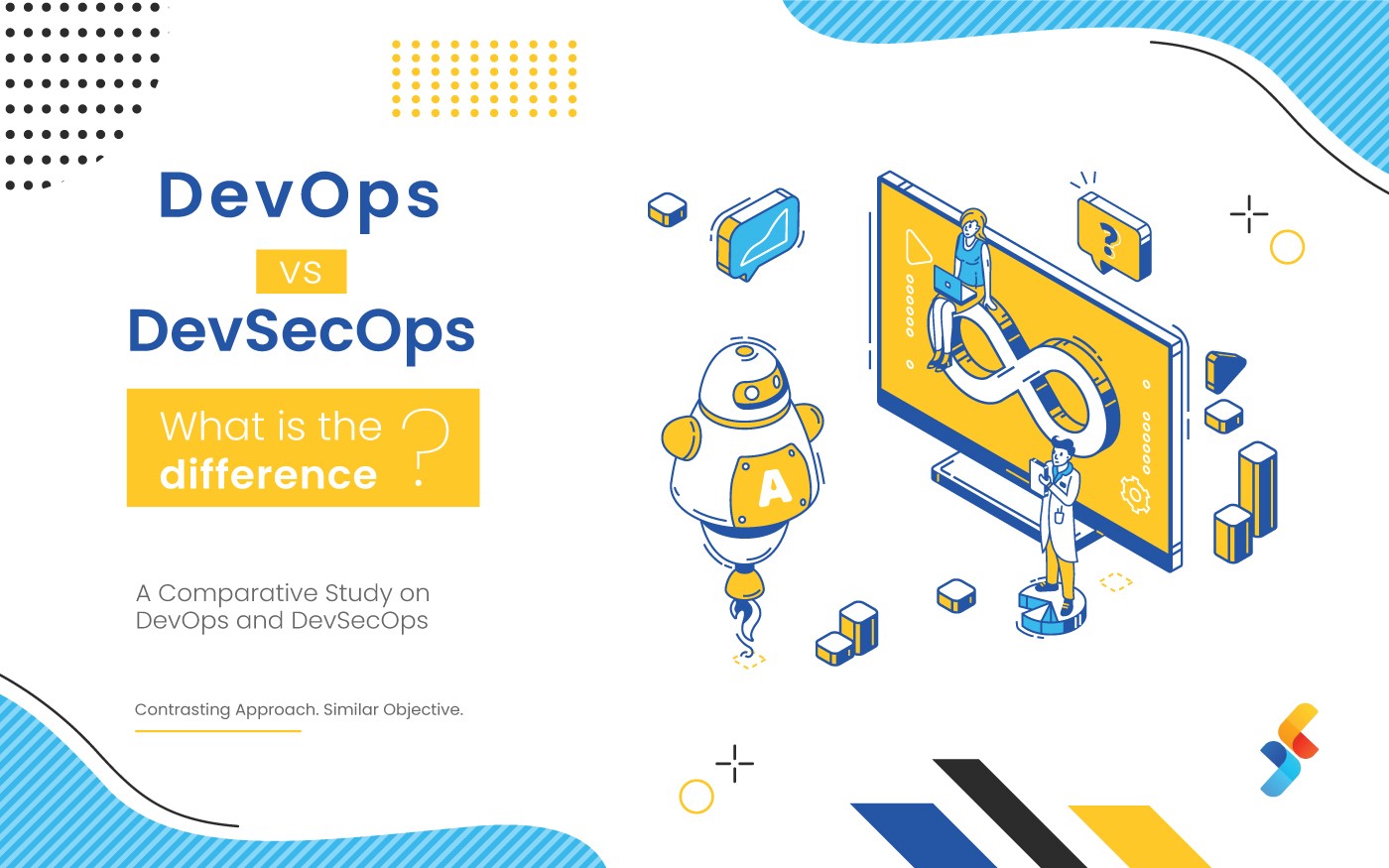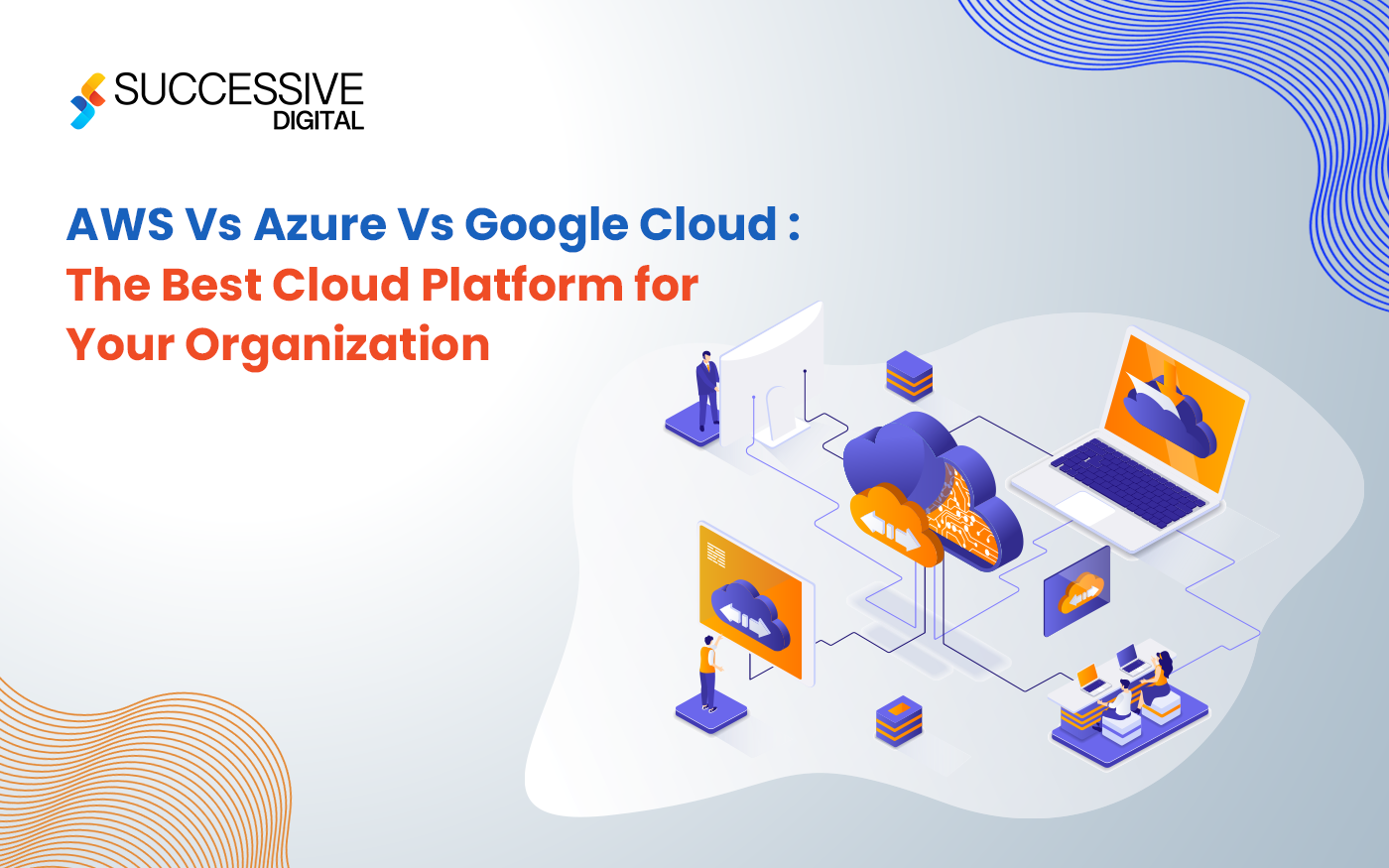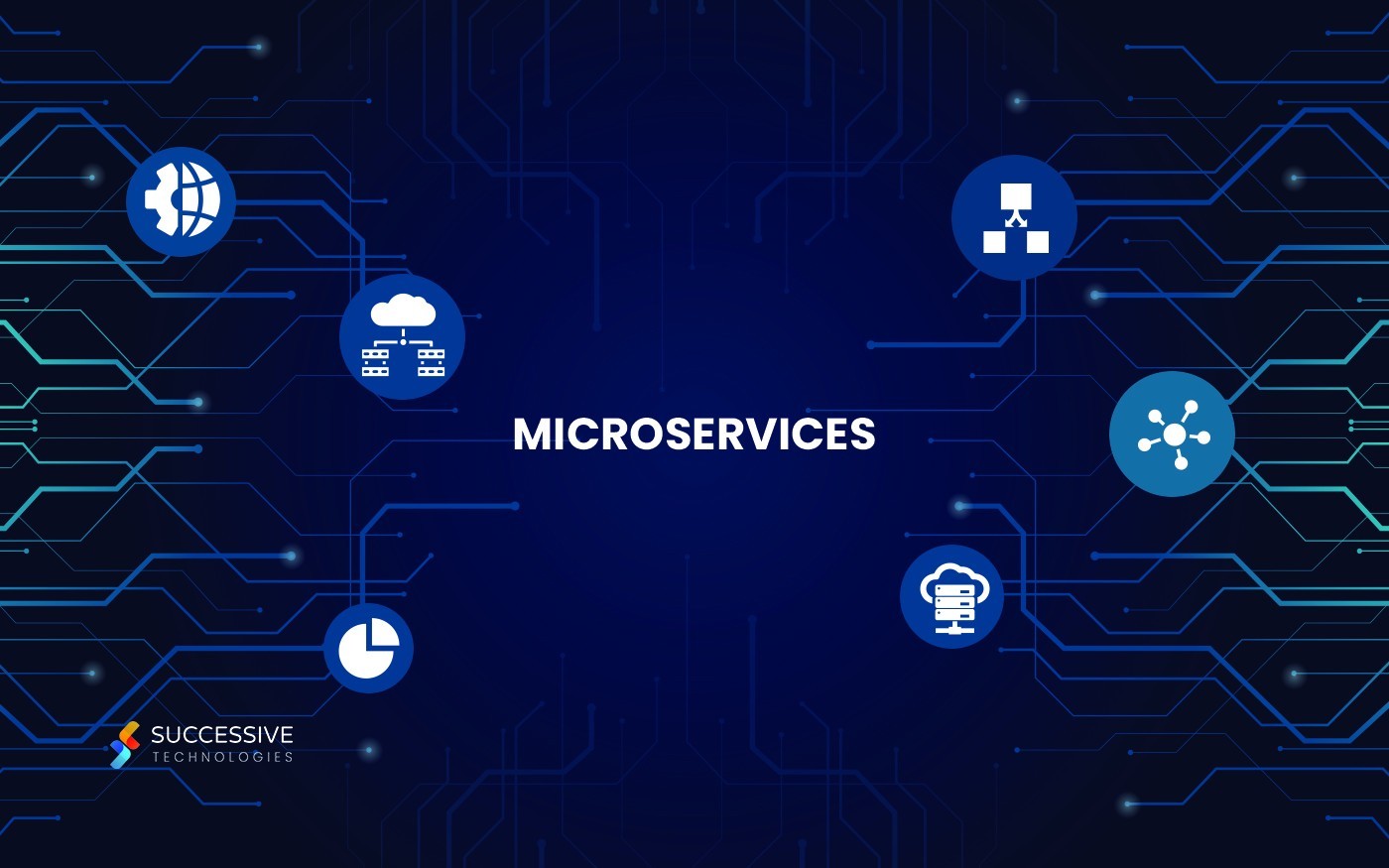Digital transformation in supply chain management is more than just increasing efficiency— it is about creating a system that responds well to the changes in real-time, and also delivering value for customers and business resilience.
Modernizing supply chain management is essential to enhance efficiency, improve customer satisfaction, and optimize costs in this digital-first age. Therefore, supply chain leaders must figure out how to deal with changing demand and disruptions, while managing the complexities of the supply chain.
This is where cloud technology comes into play, driving retail business growth by navigating the complexity of managing extensive inventories, optimizing supply chain operations, and delivering seamless customer experiences.
The Concept of Cloud in Supply Chain Management
Supply chain management, constituting 7 primary functional areas of Retail industry:-
- Purchasing
- Manufacturing
- Inventory management
- Demand planning
- Warehousing
- Transportation
- Customer service
Distribution as one process of the supply chain can lead to a cascading effect overall, which severely compromises the operation as a whole.
Cloud in supply chain management refers to the use of internet-based computing services, managing and optimizing supply chain operations, such as:
- Servers
- Storage
- Applications
Cloud technology centralizes data and enables real-time access, enabling collaboration across suppliers, distributors, and retailers. It provides tools and technologies for various supply chain management processes, including:
- Inventory tracking
- Predictive demand analysis
- Logistics management
Cloud supply chains improve efficiency, scalability, and decision-making, enabling retail businesses to respond swiftly to market changes and enhance customer satisfaction. This also leads to improved profitability through cloud logistics management.
Challenges in Supply Chain Management
- Data Security and Privacy
Ensuring the security of sensitive supply chain data in cloud environments remains a major concern.
- Integration Issues
Integrating legacy systems with modern cloud solutions can be complex, which may require additional processes and resources.
- Costs and ROI
Initial setup costs and the time required to achieve a return on investment may deter some businesses.
- Reliability
Dependence on cloud service providers for uptime and performance can pose risks if services experience outages.
- Change Management
Adopting cloud solutions often requires significant training and cultural shifts, which can face resistance.
These challenges highlight the need for careful planning and robust solutions when implementing cloud-based supply chain systems.
Benefits of Cloud in Supply Chain Management
-
Systems and Operations Scalability
Cloud systems are designed to support vertical and horizontal scaling, essential for supply chain management, allowing them to scale up or down seamlessly based on demand. Technologies like Kubernetes and auto-scaling groups in cloud platforms allow seamless scaling to handle seasonal demand spikes or geographic expansion.
-
Better Visibility
Cloud-based SCM systems integrate with IoT devices to manage GPS, RFID, and sensor data effectively and real-time tracking. This data is processed through cloud services like AWS IoT Core or Azure IoT Hub, which provide actionable insights into inventory levels, transit conditions, and warehouse management.
-
Enhanced Connectivity and Collaboration
Cloud in retail and supply chain management leverage APIs and microservices architectures to enable seamless integration with ERP, CRM, and WMS systems. For instance, APIs can connect the supplier and manufacturer platforms, while microservices handle modular supply chain tasks.
-
Increased Agility and Flexibility
Cloud-native solutions, built with containerization tools like Docker and orchestration frameworks like Kubernetes, allow SCM systems to adapt quickly to changes. These technologies enable modularity and quick deployment of updates, ensuring supply chain workflows can be rapidly adjusted to meet new demands or regulatory requirements.
Want to know how you can create agile and flexible applications? Read our blog Cloud Native Application Development Guide to know more!
-
Improved Data Analytics for Real-time Decision-making
Cloud providers offer advanced analytics tools, which process massive datasets to deliver predictive and prescriptive insights, such as:
- Google BigQuery
- AWS Redshift
- Azure Synapse Analytics
Real-time dashboards powered by tools like Tableau or Power BI integrate directly with cloud storage solutions for live tracking of metrics like supplier performance and delivery timelines.
-
Lower Cost
Serverless computing models, like AWS Lambda and Azure Functions, reduce the need for constant server provisioning. These services execute supply chain operations tasks, such as inventory checks or order verifications, on demand, lowering operational costs by eliminating idle server time.
-
Fast Response
Edge computing, integrated with cloud platforms, ensures low latency for real-time operations. For example, processing data from IoT devices at the edge (near warehouses or retail centers) reduces lag and speeds up decision-making during inventory shortages or supply chain disruptions.
-
Improved Disaster Recovery
Cloud platforms offer robust disaster recovery options, including geo-redundant storage and backup as a service (BaaS). Tools like AWS Backup and Azure Site Recovery provide automated snapshots and failover capabilities, ensuring minimal downtime. Multi-region replication strategies supported by high availability zones ensure that critical supply chain systems remain operational even during localized failures.
Specific Use Cases of Cloud in Retail Supply Chain
1. Transportation Management
Cloud computing in supply chain management enables efficient transportation management by effectively integrating GPS, IoT sensors, and real-time tracking systems. For instance, solutions like Oracle TMS and SAP Transportation Management provide centralized visibility and automated scheduling.
Hence, cloud-based transportation management systems help retail industry perform various tasks, such as:
- Optimize routes
- Monitor delivery schedules
- Reduce fuel costs
2. Warehouse & Inventory Management
Warehouse management systems powered by cloud solutions ensure dynamic changes and real-time inventory visibility with optimized storage processes. By leveraging IoT and RFID, retailers can track stock levels and locations. Integration with cloud ERP systems allows for automated restocking triggers and precise order fulfillment.
3. Driver-based Demand Planning
Cloud computing in the supply chain offers advanced analytics to support driver-based demand planning. Retailers can use machine learning algorithms, hosted on platforms like AWS SageMaker or Azure Machine Learning, to identify key demand drivers such as seasonality, marketing campaigns, and regional preferences. Hence, retailers can align procurement and production with anticipated demand.
4. Fraud Detection
Cloud systems enable real-time fraud detection by analyzing large datasets across supply chain operations. AI-driven fraud detection tools, like Google Vertex AI or IBM Watson, monitor unusual patterns in supplier invoices, payment discrepancies, or shipping anomalies. Retailers can set automated alerts to flag potential fraud risks before they escalate.
5. Predictive Demand Analysis
Cloud-based tools for demand forecasting utilize predictive analytics to help retailers use historical data to predict future demands, such as:
- Analyze historical sales data
- Customer trends
- External factors like weather or economic changes
Additionally, platforms like Google Cloud BigQuery or Snowflake process massive datasets to provide accurate, actionable forecasts, ensuring optimal stock levels and minimizing overstock or stockout scenarios.
6. Retail Supply Chain Collaboration
Cloud computing ensures seamless communication and collaboration across the supply chain through centralized platforms. Tools like Microsoft Teams and Slack, integrated with cloud ERP systems, enable a collaborative culture in retail through various processes, such as:
- Instant sharing of documents
- Real-time updates
- Better coordination between retailers, suppliers, and logistics
Top Considerations for Adopting Cloud-based Solutions for Supply Chain Management
-
Data Security
For retail to maintain the security, understand how your data will be protected and the protocols for data breaches. When adopting cloud solutions, ensure the robust security measures in place, including encryption, access controls, and compliance with industry standards.
-
Integration with Legacy Systems
Assess the cloud solution’s compatibility with legacy systems to ensure seamless integration. A well-planned integration strategy can help mitigate disruptions and enhance overall operational efficiency.
-
Cost Optimization
While cloud solutions can offer significant cost savings, it is crucial to analyze the total cost of ownership, including:
- Subscription fees
- Maintenance
- Potential hidden costs
Look for opportunities to optimize cloud costs through scalability and by evaluating different pricing models offered by providers.
-
Multi-Cloud Strategy
Relying on a single cloud provider can lead to vendor lock-in, limiting flexibility and increasing risks. Therefore, adopt a multi-cloud strategy, which can distribute workloads across different providers, enhancing resilience and negotiating power.
-
Data Ownership
Assess the data ownership and control rights with your cloud provider to ensure that your organization retains ownership of its data and can easily access and export it if needed. Moreover, it is crucial to understand data ownership for compliance and operational continuity.
-
Customization
Look for cloud solutions that offer customization options to align with your specific business needs to enhance user experience and ensure the solutions that fit into your existing workflows.
-
Regulatory Compliance
Different industries have varying regulatory requirements and thus, you need to ensure that the cloud provider complies with relevant regulations. With this understanding, retail businesses can avoid legal issues and ensure data protection.
-
Training and Adoption
For a successful adoption of cloud solutions, effective training for your team is required. Therefore, invest in comprehensive training programs to ensure that employees understand how to use the new system effectively, leading to better utilization and faster ROI.
-
Service Level Agreements
Having clear SLAs can help businesses manage expectations and provide recourse in case of service disruptions. Therefore, review the SLAs offered by cloud providers, which outline the expected level of service, including:
- Uptime guarantees
- Support response times
- Performance metrics
Conclusion
Implementation of cloud in supply chain management is transforming the retail industry by enhancing efficiency, scalability, and agility. From real-time visibility to advanced analytics to seamless collaboration, cloud-based solutions are enabling retailers to meet consumer demands while staying competitive.
There are some of the critical impacts of cloud technology on retail supply chains, such as:
- Ability to adapt quickly to disruptions
- Streamlined operations
- Deliver superior customer experiences
Are you ready to optimize your retail supply chain with cloud solutions? Contact us today!
FAQs
Cloud computing in the supply chain incorporates servers, storage, databases, networking, software, analytics, and business intelligence, all things automated communication via the cloud. With that, the speed, scalability, and flexibility can be achieved in the supply chain process in the Retail industry to develop, innovate, and support their business IT solutions.
With cloud, supply chain management can enhance automation, enabling streamlined process and improve operation efficiency in processes like:
- Order management
- Inventory syncing
- Real-time data processing
- Team collaboration
- Return management
The cloud SCM market is expected to reach $8.61 billion by 2027, showing compound annual growth rate of 11.1% during the forecast 2022-2027. Companies are widely utilizing cloud supply chain management (SCM) for various advantages and will continue to do so, such as:
- Gain operational efficiency
- Automate mundane operations
- Save costs
- Improve visibility
Moreover, companies will invest in technologies for more efficient and resilient supply chain, such as:
- Data analytics and AI
- Generative AI
- IoT
- AR/VR
Furthermore, organizations will embrace agility with cloud solutions to navigate the complexities of a rapidly evolving retail market. And focus on sustainable practices into their supply chains.












